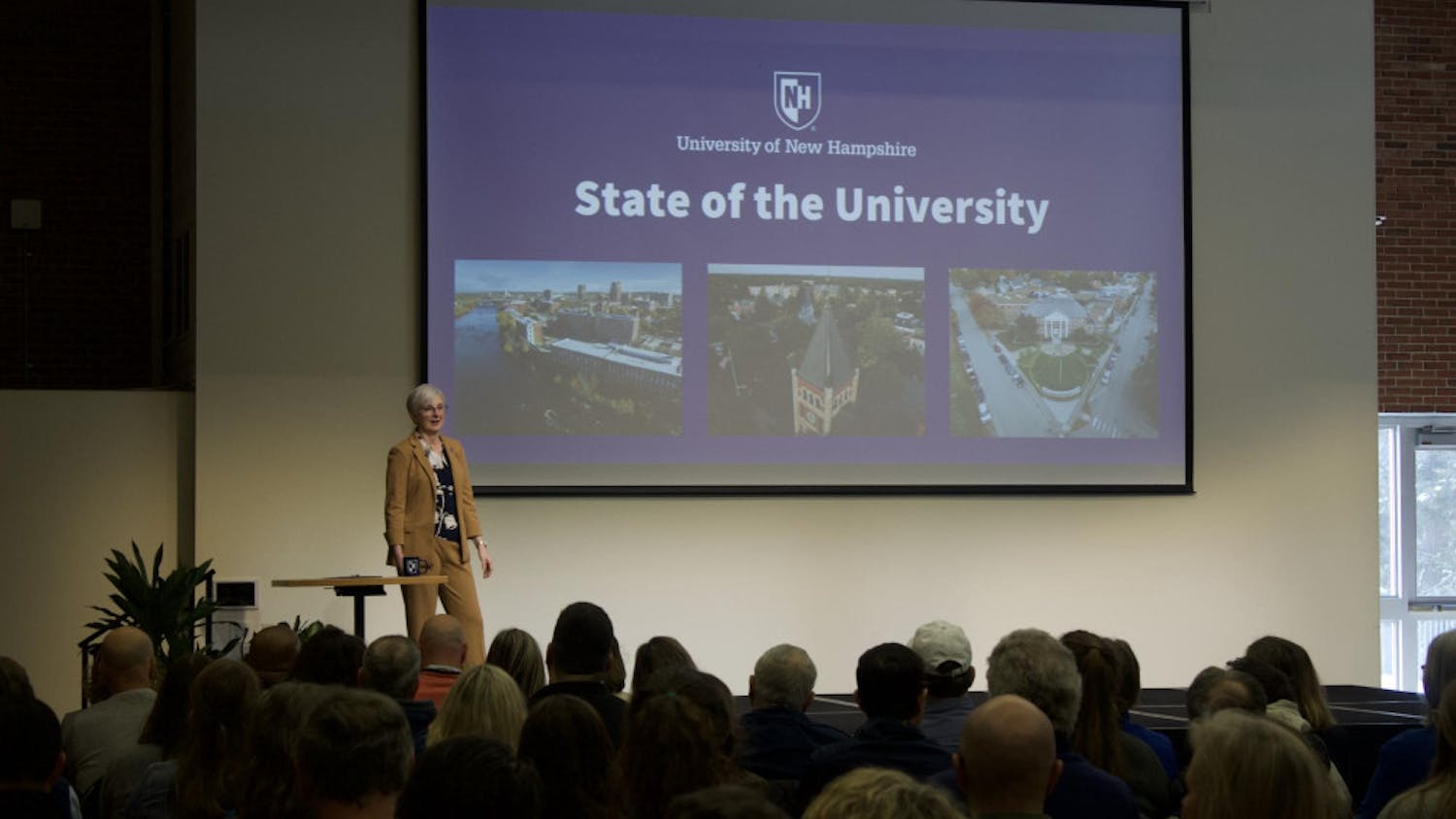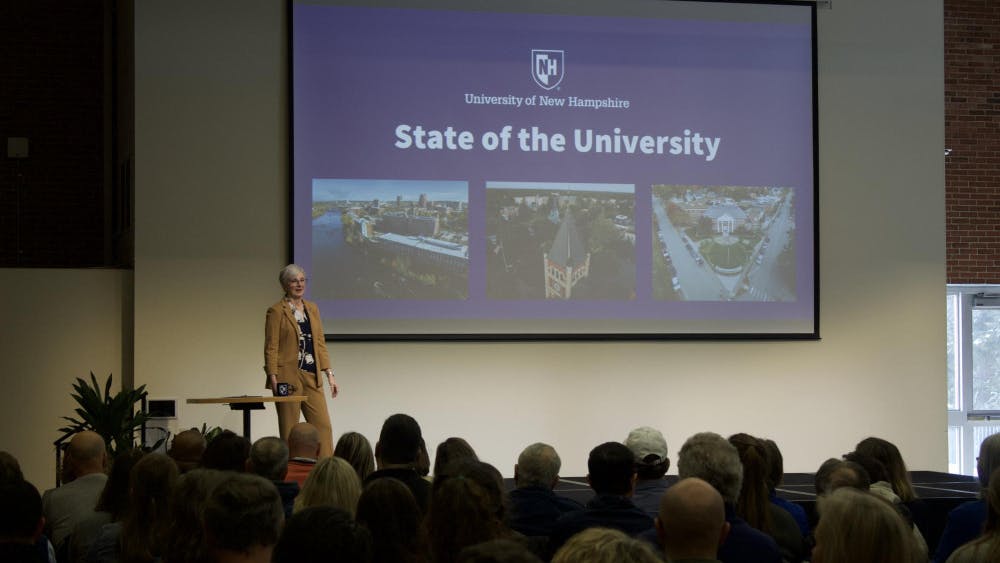DURHAM, NH- As the Fall semester concludes, stakes are high as students at the University of New Hampshire (UNH) toil over assignments, register for next semester’s courses and prepare for final exams. Amidst these stressors, some students may find themselves struggling with anxiety, insomnia, trouble focusing and symptoms of depression, which can negatively impact their academic performance. One culprit for these symptoms could be a condition called burnout.
According to the World Health Organization (WHO),burnout is described as an occupational phenomenon, and is not considered a medical condition. Yet, those who experience burnout face symptoms of anxiety and depression, along with other uncomfortable symptoms.
“Even though burnout is not classified as a medical condition, it is still a mental health issue and can be treated as such,” said Elisa Bolton, director of Psychological and Counseling Services (PACS) at UNH.
“It can lead to reduced academic success and a lack of creativity,” Bolton continued.“At PACS, we try to help students manage their boundaries, making time for both academic and personal needs.''
To combat burnout and prevent added stress as finals approach, Bolton recommends students create a balance that includes sleeping well, eating, exercising, spending time with friends and studying.
“Students should do their best to make time to sleep well, eat, exercise, spend time with friends, study for exams and do assignments when they get the chance. It’s important to be able to create balance in our lives.”
One resource provided by PACS that can help students assess their wellbeing is themental health continuum, which helps students understand where they are in terms of mental health and wellbeing, as well as get a sense of what resources may be helpful for them, according to Bolton.

College students juggle personal responsibilities in addition to an academic workload, which at times can enhance burnout. Without taking proper steps to take care of oneself, burnout can creep in uninvited.
“Your main occupation right now is to be a student. College students are often feeling perpetually overwhelmed, trying to meet a number of demands on their work, personal, academic and social life. So often, experiencing ongoing stress becomes normalized, assuming that in order to be successful we have to be in the grind or always hustling,” said Shannon Seiferth, well-being educator and counselor at Health and Wellness at UNH.
Seiferth recommends building in tiny pockets of self care into your everyday routine, making sure that you take care of your needs and are replenishing your body. She recommends doing small things every day, such as taking walks outside, drinking water, power naps or going to the gym, “so that we never hit the point where our psychological reserves are completely tapped.”
To raise awareness about burnout and some coping methods, UNH hosted the Navigating & Leading Through Burnout lab at the Memorial Union Building (MUB), Nov. 9.
At the event, Colleen Kelty, coordinator of student arts and leadership at the MUB collaborated with Madi Heerdt, coordinator of Off Campus Student Engagement & Fraternity and Sorority Life at UNH, to educate students about how burnout might affect them and some ways to prioritize their needs as a leader to combat the impacts of burnout.
Guests were given the chance to use additional resources, such as theburnout calculator, a tool that can be helpful to periodically assess our wellbeing and risk of burnout.
“I really like this tool because it considers your tendencies as a person, as well as factors from the outside world that impact our wellbeing,”Kelty said.
Heerdt explained that there are many systems and environments that can lead to burnout, such as our jobs, familial stress, academic responsibilities, technology overload, financial worries and social commitments.
“Burnout happens when these systems around us start to overwhelm us and become exhausting,” Kelty said.
“It’s not just you, but the systems we exist in,” Heerdt said.
To prevent the systems in our lives from becoming overwhelming, Kelty recommends, “setting personal boundaries and always protecting your peace.”
Guests at this event also completed a SOAR analysis, in which they were asked to analyze their strengths, opportunities, aspirations and resources that they have right now and in the near future. The goal of this procedure is to relieve some of the worries that many students have for their future, and remind them that their goals can be achievable.
“Burnout is not a failure. It doesn’t mean you failed or make you any less of a person. But it gives us room to grow and opportunities to improve as we navigate and lead through life with burnout,” Kelty ended.
Psychological and Counseling Services (PACS)- (603) 862-2090
Living Well Services- (603) 862-3823
According to the World Health Organization (WHO),burnout is described as an occupational phenomenon, and is not considered a medical condition. Yet, those who experience burnout face symptoms of anxiety and depression, along with other uncomfortable symptoms.
“Even though burnout is not classified as a medical condition, it is still a mental health issue and can be treated as such,” said Elisa Bolton, director of Psychological and Counseling Services (PACS) at UNH.
“It can lead to reduced academic success and a lack of creativity,” Bolton continued.“At PACS, we try to help students manage their boundaries, making time for both academic and personal needs.''
To combat burnout and prevent added stress as finals approach, Bolton recommends students create a balance that includes sleeping well, eating, exercising, spending time with friends and studying.
“Students should do their best to make time to sleep well, eat, exercise, spend time with friends, study for exams and do assignments when they get the chance. It’s important to be able to create balance in our lives.”
One resource provided by PACS that can help students assess their wellbeing is themental health continuum, which helps students understand where they are in terms of mental health and wellbeing, as well as get a sense of what resources may be helpful for them, according to Bolton.

College students juggle personal responsibilities in addition to an academic workload, which at times can enhance burnout. Without taking proper steps to take care of oneself, burnout can creep in uninvited.
“Your main occupation right now is to be a student. College students are often feeling perpetually overwhelmed, trying to meet a number of demands on their work, personal, academic and social life. So often, experiencing ongoing stress becomes normalized, assuming that in order to be successful we have to be in the grind or always hustling,” said Shannon Seiferth, well-being educator and counselor at Health and Wellness at UNH.
Seiferth recommends building in tiny pockets of self care into your everyday routine, making sure that you take care of your needs and are replenishing your body. She recommends doing small things every day, such as taking walks outside, drinking water, power naps or going to the gym, “so that we never hit the point where our psychological reserves are completely tapped.”
To raise awareness about burnout and some coping methods, UNH hosted the Navigating & Leading Through Burnout lab at the Memorial Union Building (MUB), Nov. 9.
At the event, Colleen Kelty, coordinator of student arts and leadership at the MUB collaborated with Madi Heerdt, coordinator of Off Campus Student Engagement & Fraternity and Sorority Life at UNH, to educate students about how burnout might affect them and some ways to prioritize their needs as a leader to combat the impacts of burnout.
Guests were given the chance to use additional resources, such as theburnout calculator, a tool that can be helpful to periodically assess our wellbeing and risk of burnout.
“I really like this tool because it considers your tendencies as a person, as well as factors from the outside world that impact our wellbeing,”Kelty said.
Heerdt explained that there are many systems and environments that can lead to burnout, such as our jobs, familial stress, academic responsibilities, technology overload, financial worries and social commitments.
“Burnout happens when these systems around us start to overwhelm us and become exhausting,” Kelty said.
“It’s not just you, but the systems we exist in,” Heerdt said.
To prevent the systems in our lives from becoming overwhelming, Kelty recommends, “setting personal boundaries and always protecting your peace.”
Guests at this event also completed a SOAR analysis, in which they were asked to analyze their strengths, opportunities, aspirations and resources that they have right now and in the near future. The goal of this procedure is to relieve some of the worries that many students have for their future, and remind them that their goals can be achievable.
“Burnout is not a failure. It doesn’t mean you failed or make you any less of a person. But it gives us room to grow and opportunities to improve as we navigate and lead through life with burnout,” Kelty ended.
Psychological and Counseling Services (PACS)- (603) 862-2090
Living Well Services- (603) 862-3823












